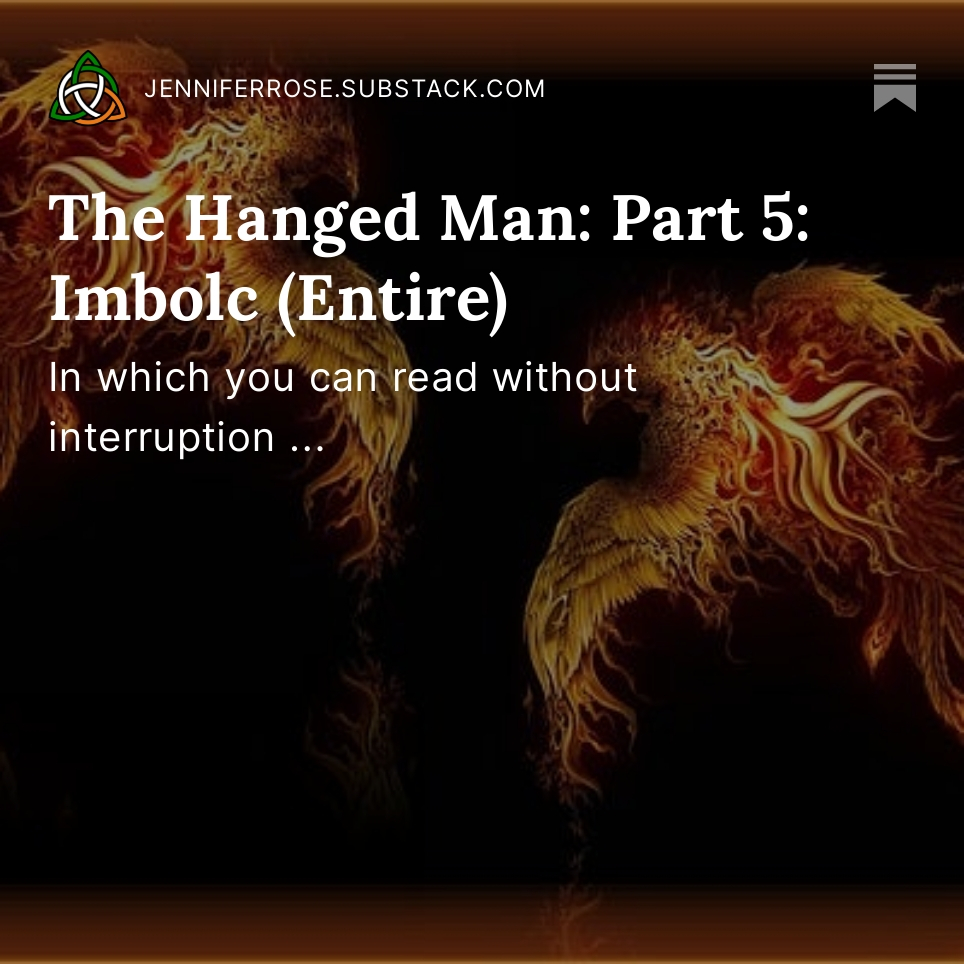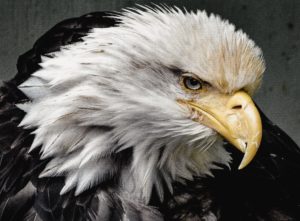by Jenny Rose | Oct 8, 2022 | A Flourishing Woman, The Journey
Now is the path
of leaving the path.
And we hear our own voice
demanding of ourselves
a faith in no-path,
when there is no faith at all.
–David Whyte, from “Millennium”

Photo by Jon Flobrant on Unsplash
I sit in my favorite grey-green overstuffed chaise, a pillow at my back, a cat curled in a cat bed behind me on the back of the chair, my laptop on my lap with a slim volume of poetry by David Whyte titled Fire in the Earth next to my leg. A bookmark indicates the above passage. It’s a chilly, grey day. As I sit here the furnace hums and stops, hums and stops, keeping the temperature around 60 degrees. This house we bought in May has a brand-new propane hot water furnace, supposedly the most economical and efficient available. This week is the first time we’ve used it. What will propane cost this winter? Will electrical costs spike as much as predicted? Will it be a cold winter or a mild one?
Always, this question in my mind: “Will I be able to manage economically?”
Enlarging my own personal bubble, I ran errands this morning. A haircut from a friend, during which we talked about the coming winter, how costly it might be, how cold it might be, how effective foam and cloth barriers like rags and old blankets might be in chinks and cracks around doors and windows. How can we hold in the heat, keep out the icy fingers of cold reaching for our paychecks?
I went to the town dump with the recycling, plastic and cans. Does all this material really go for recycling, or is it quietly disposed of in earth or ocean somewhere out of sight? I try to have faith that is really is recycled. Eggs are cheaper when I buy 18 in a carton, but the carton is plastic. But the plastic is recyclable. Maybe. If they actually do it.
This is the kind of thing that preoccupies my mind. A lot.
The furnace clicks on again. How much would I save if I turned it down just 2 degrees?
After the dump, I went to the store. I bought a couple extra jars of salsa, a couple extra pounds of butter. I’ve read about the climate-change decimated tomato crop this year and to expect shortages. Ditto butter. I bought a turkey on sale. It’s early, but I’ve read turkeys will also be in short supply. Every time I go to the store, I’ll buy a tomato product for my pantry, a pound of butter for the freezer.
Enlarging my small city bubble, maybe the projected shortages aren’t real. Maybe it’s all hype, designed to keep people spending as recession fears rise and prices climb. Maybe we can’t believe anything we read or hear from anyone. It’s like standing on the beach in bare feet, feeling the waves pull the sand away from beneath my soles, the sand of common sense, the sand of objective reality, the comforting, warm sand of sanity and critical thinking. Maybe the tide is too powerful, the waves too forceful for most people to withstand. Maybe, by the end, we will really believe in … nothing. Our individuality will be erased. Art, science, and thought will be exterminated. Our lovely sexuality will be neutralized and sterilized. Our magnificent bodies will be surgically altered according to our whims or the dictates of the totalitarians in charge and, if possible, amputated altogether from our increasingly narcissistic and developmentally arrested minds.
From the bubble of my chair in this moment of solitude with my fingers on the keyboard to the world. It’s a grim journey.
I feel increasing pressure to bring in more money. More hours are not possible right now at my job. Another job? Two other jobs? I’ve sold everything I can. I budget every penny. How much of my anxiety is based in real conditions and how much is my longstanding fear of scarcity and tendency to catastrophize? Is it not a job I need, but to GET A GRIP?
I can’t tell. Ask me when heating season is over.
Of course I could get a side job. It’s what a normal person would do. Need more money? Find more work. But is that the right thing for me to do? (I do still claim the right to think for myself.) Would the extra money be worth the time, the energy, the fatigue? I don’t want to live to work and earn. I’ve never wanted that. I’m nearly 59 years old. If I don’t take care of my excellent health, I may not get it back. Is an extra couple of hundred dollars a month worth the strain?

Photo by Angelina Litvin on Unsplash
I’d love to earn my living writing, but I believe it’s a less and less realistic dream. Traditional publishing is dying. Soaring costs and shortages, not the least of which is paper, are forcing change. Very few writers live by their writing alone. Very few. Many do earn some income from it, however.
I love books. I also love trees. If I must choose between a book in my hands and a tree, I’ll read on a digital device for the sake of the tree. Even now I never buy a new book, only used. I write – and people read what I write – on two digital platforms, this WordPress blog and Substack. Should I be monetizing those rather than searching for another job?
I’ve been having that internal conversation for years.
Would I rather avoid asking for donations or putting up a paywall and clean houses or something like that? Anyone can clean. No one but me can write what I write.
I recently picked up a couple of used books of David Whyte’s poetry. The first poem in the first book I opened contained the above excerpt. I was sitting outside in the weakening sun when I read it a couple of days ago. I put the book down and cried.
Oh, Mr. Robert Frost and his road not taken. The well-traveled roads. The less well-traveled roads. The once travelled but now overgrown roads. The paths we tread, following others, and directed by others. The faint game trails that peter out in the wilderness. The well-paved roads and paths that lead to Hell. And now Whyte asks if it’s time to leave the path altogether. Not only that, but to have faith when I have none. Faith in the no-path.
And aren’t we there, at the no-path? Civilizations have collapsed before, but not as the planet was undergoing its own collapse. Well, maybe that’s not right. Maybe in eons past it’s all happened before – relatively abrupt climate change, enormous die-off, cataclysmic geological and oceanic reshaping, and reemergence into a new normal, healthy, planetary system.
If there were paths humans could tread through all that, they’ve been lost.
But let’s make the bubble smaller again. I can’t choose your path, or anyone else’s. Is the right path for me the no-path? The money path is clear. Work more, spend less, have more money. We all know it. Most of us have walked it. It’s well-signed and well-traveled. There’s an equally well-signed and well-traveled path into theft, fraud, extortion, etc., but none of those are options for me, so let’s not complicate matters.
What’s the no-path? Oh, that would be the writing. Always. Whatever our creative work is, it takes us on to a no-path, because creativity is unique. We’re always breaking trail, one way or another. We may follow, for a time, the paths of others, or intersect their trails, but we’ll make our own unique track, worn by our footsteps as we go along, unrolling in front of our feet, existing only because we turned off the main road into a no-path … and made a path.
Faith in a no-path when there is no faith at all. What a strange, dream-like, impressionistic phrase, balancing on the edge of holy foolishness and divine wisdom. It would take a poet of Whyte’s caliber to – well, to take that path.
Right now I’m pausing, considering my options, thinking, feeling, reading and writing my way forward. I don’t have a map for these times. Does anyone? Perhaps faith isn’t necessary, just determination and choosing the next step.
Wherever we go
we can only take a step from here.
–David Whyte, from “Millennium”
It’s good to be reminded of the no-path. The six-lane highway we’ve been following has led to climate change, increasing political and social tensions, and worldwide social and economic instability. Who knows where a no-path might take me; it could hardly be much worse. At least it would be my own path, chosen by me. My feet would define it, my choices shape it. My sweat. My challenges. My journey. No guarantees, but no lies, either. Lonely, perhaps, but I’m no fan of doing what everyone else does, just for the sake of it.

Photo by NASA on Unsplash
Or maybe it’s not a question of travel at all, at least not all the time. Maybe it’s a question of standing still, like a mountain, like a tree. Standing still is an art we’re losing as a species. Maybe there’s nowhere to go and nothing to do; everything is just as it should be, no matter how uncomfortable or fearful. Maybe I have enough.
Maybe I am enough.
And standing still,
saying I, and the small vision I have
-is enough, becomes the hardest path of all.
–David Whyte, from “Millennium”
To read my fiction, serially published free every week, go here:

by Jenny Rose | Aug 6, 2022 | Connection & Community, Emotional Intelligence
For part 1 of this post, please go here.
I’ve been exploring this quote from Priscilla Shirer:
“Unity does not mean sameness. It means oneness of purpose.
It’s interesting, how a one-line quote can trigger so much contemplation and so many questions.

Photo by Bewakoof.com Official on Unsplash
I’ve had two conversations with two different friends in the last week about how hopeless we feel to bring about positive change in the current political and social climate because people in general seem unable to unify and work together. A clear leader has not stepped forward. We are increasingly split into factions and too busy with in-groups and out-groups to step back and consider the whole picture.
This is not an accident. Unity is a distinct social advantage and a powerful strategy. It’s also apolitical, which is easy to see on the nightly news. Traditionally large groups are fragmenting into smaller and smaller units. Small groups, by means of forced teaming and other manipulations, are usurping power from established organizations. Current political leaders on both sides of the aisle are losing their followers. As traditional boundaries and frameworks dissolve, chaos and confusion sweep us into a new national and political reality, and it is not unity.
And then there’s capitalism. What we all have in common is an assault on our personhood, the subsummation of a human being into a cash commodity. In other words, how much money are we worth? Can we be manipulated into spending money or persuaded to prostitute for marketers and algorithms, politicians and bloated corporations?
Here, let me bend over and pick up that “free” soap for you.
For years, various people have told me I will never be “successful” if I don’t get on Facebook.
For years, I’ve resisted that assertion. Who made that rule? What is the evidence for that? Who benefits from me being on social media when it’s something I absolutely do not want to do?
I am fortunate to have a central pillar of support for my writing in a close relationship. That person is on FB and consistently, week after week, posts links to my work on his page. A couple of weeks ago, upon posting links to my latest Substack posts, FB threatened to suspend him. Why? Because the image that happened to be grabbed with one of those linked posts was a black and white picture of a nude pregnant woman. Nudity. Horrors. (You can go look at the pic here. Scroll down. You’ll know it when you see it.)
So, here’s the thing. An algorithm did that. It was instantaneous.
I’m not writing for algorithms. I’m writing for people.

Photo by freddie marriage on Unsplash
The hypocrisy staggers me. One can spread whatever mis- and disinformation one likes on FB’s platform. Stalkers and doxxers use it. Hate groups and insurrectionists plan to overthrow the government and kill people on it. Ideologues of all stripes churn out toxic poison on a daily basis. Bots and bad actors, both overseas and home grown, are free to roam, and every single keystroke users make is carefully recorded and mined so everyone can receive exactly the information they want to hear along with advertising they’re most likely to respond to.
The platform has grown and grown, become richer and richer, more and more influential, and less and less about connecting people on a healthy individual level. It’s now a sprawling, unmanageable mess. Users are leaving, and the company cannot adequately police and monitor itself or the activity taking place on the platform. So they look for ways to get even bigger and make more money (by making it more addictive and persuading the culture at large everyone needs an account to be “successful”) and write more algorithms to deal with “inappropriate” content (as defined by the company).
Nudity has been judged as inappropriate content, and because of an image grab over which neither the person posting nor I had any control (there were several other non-naked images in those posts), links to my content were deleted and suspension threatened.
That’ll teach us.
What it taught me is I’ve been right all along. Right to create my own blog and website. Right to find a platform like Substack that does not censor my work. Right to write for readers rather than clicks, stats, and algorithms.
My friend on FB has undoubtedly done much to get my work out there and find readers. No question about it, and I’m grateful every week for his efforts on my behalf.
On the other hand, if the price of “success” is participation on FB, it’s too high. I’m not interested. Not even a little bit. In fact, I feel vaguely I must be doing something absolutely right in order to be banned by an algorithm. I tried to squeeze out a tear of fear and self-pity, but I couldn’t manage it. There’s an ever-growing club of thoughtful, intelligent, science-based, talented people who have been suspended or banned (or both) from FB. I’d be proud to hang with them and I’m glad to read them elsewhere.
What does this have to do with unity? Well, FB was originally about connection, yes? First it was a dating hub. (All right, a getting laid hub. Whatever.) Then it was a way to maintain connections over long distance. Then it grew into a monster that presented every user with a way to maximize a “friends” list while allowing bullying, silencing, stalking, deplatforming, identity theft, hacking, and other behavior people feel they can get away with behind the privacy of their screen and keyboard.

Photo by Quino Al on Unsplash
Where is the unity now? What is our oneness of purpose? Oh, right. We’re unified in being income streams for FB. Lucky old FB.
FB lives because we animate it. Never forget that. We’re the ones who decide no one can be “successful” without it.
Oneness of purpose is a great phrase, but what does it really mean, and how do we get there? Is there any such thing as oneness of purpose anymore? Is our world too complicated for that? Can we come up with a simple overarching statement of purpose, or are we too tangled up in our ridiculous labels and ideologies, too distracted by our outrage and all the people wrong on FB and other social media, to raise our heads and look at the bigger picture?
Do we want our culture to be run by entities like FB that pay lip service to “friends” and “connection” but in actuality work to make money off discord, fear, and disconnection? Do we want our country to be run by authoritarians and corporations? What’s stronger, a handful of small sticks bound together or a handful of splinters? We the people are not powerful enough to make sweeping change individually. Our power, the power of democracy, is in unity of purpose. If we lose our ability and willingness to unify, we’re at the mercy of whatever bloated, narcissistic, moronic, power-mad, lying clown and his train of minions and hangers-on comes along.
And that’s worked out so well.
What I know is I’m writing for you, whoever you are, reading this page. I’m sitting in my green suede chaise with a cat above my right shoulder on the back, the blinds drawn against the heat, the laptop in my lap, writing for you. I’m not writing for FB or an algorithm. I’m not battering you with advertising. I’m not collecting your data. I’m not writing clickbait. I’m not thinking about success, beyond writing a good post, editing it, and publishing it today. Because that’s what I do on Saturdays. I’m not thinking about the money I’ll make, because all my content both here and on Substack is free at this point.
I have no interest in what you’re wearing, what color you are, to whom you pray, how you vote, if you’re vaccinated, what your biological sex or gender expression is. I don’t care where you live. I don’t care how much money you make or have. I don’t care who you love, but I hope one person you love is yourself. I don’t care how old you are, or what you eat, or what your health status is, or what language and culture you were born into.
If you’re reading this, I’m writing for you. If you find anything of value in my work, I’ve succeeded and we’ve made a connection.
There’s no need to hit a like button for an algorithm.
On the other hand, if you find an artistic black-and-white photograph of a nude pregnant woman offensive, you might appreciate FB’s censorship of “inappropriate” material, and you probably won’t enjoy my work.
And that’s okay, too. You won’t find me polluting the pages of Facebook with my obscene pornography.
Those of you who come to me through C. Leo’s Facebook page may want to consider subscribing directly through Harvesting Stones and/or Substack. I don’t know if he’ll continue to try to post links to me and risk suspension or not.
I’m going to continue to write what I write and use the images I like. I’ll let other people worry about whether I’m a “success” or not.
My oneness of purpose: To connect, to think critically, to explore, to question, to discuss, to create, to make a positive contribution.
What’s yours?

Photo by Morgan Sessions on Unsplash
by Jenny Rose | Jul 9, 2022 | Power
When we bought our new house, a flagpole and the American flag came with it.

Photo by David Beale on Unsplash
The day Roe v. Wade was overturned, we took down the flag. I don’t recognize America anymore. The democracy I grew up in is languishing and I no longer feel our government represents the best interests of people or planet. It certainly isn’t interested in surviving and thriving for any but a select few power-over people who are impotent, incompetent, and emotionally bankrupt, not to mention unbelievably stupid. These times are the logical end stages of capitalism. We are so far astray we have made money into a god and worshiping that god has us all on our knees and many of us face down in the street being murdered. I’m not celebrating. I’m grieving. I’m angry.
The pandemic years and increasing awareness and visibility of systemic racism brought the discussion of freedom into daily discourse. What freedom is. What freedom isn’t.
Freedom is power. People who work for power with others focus on supporting an equitable playing field for all. That means some people need to lose some power and others need to have theirs restored so we all have equal access to resource.
Power, by the way, is not defined by money. We’ve been culturally brainwashed to believe it is, but it’s not. Who benefits from the persistent and relentless narrative insisting it is? Are you benefitting?
People who work for power-over are afraid. Fear breeds hatred. Other words for hatred are racism, homophobia, and bigotry. Power-over people, like any tyrant, fear rebellion, and all their energy goes into controlling information and brutally silencing dissent or discussion.
What we are allowing to take shape is a dystopian world. It’s not a movie we’re going to walk out of in two and a half hours. It’s not a science fiction book. It’s not a role-playing game.
It’s real, and it’s really happening. Just like climate change, it’s not something to scare or depress ourselves with and then, like Scarlett O’Hara, tell ourselves we’ll think about it tomorrow. Tomorrow was yesterday. Climate change and the end of democracy are not far-off footsteps in the night-dark and scary forest. They’re here. They’re now. They’re in our tent with us.
Here are characteristics of a dystopian society:
- Communication (misinformation) is used to control citizens.
- Information (facts), critical thinking, and freedom are restricted.
- Citizens worship a figurehead or ideology.
- Citizens perceive they are under constant surveillance.
- Citizens fear change, new information, or new experience. Anything or anyone different is perceived as a threat to existence. Conformity is paramount. Individuality and dissent are stamped out.
- Citizens are stripped of their humanity.
- The natural world is raped, poisoned, and distrusted.
- Controls force citizens to accept the illusion of a perfect utopian world.
Dystopian controls include corporate, bureaucratic, technological, and philosophical/religious entities.
Welcome to the dawn of dystopia, people. For most of us, freedom is slowly vanishing, but it’s still possible to reclaim it. There are people who see clearly and speak and write the truth. Some of us believe in the common good and in living in service to others, to justice, and to the planet. We can fight. We can refuse to be silenced. We can hold fast to one another and balance the growing hate in the world with our love and righteous anger.
I’ll leave you with a couple of thoughts from Toni Morrison:
“The function of freedom is to free somebody else.”
“Freedom is choosing your responsibility. It’s not having no responsibilities; it’s choosing the ones you want.”
Be well. Take care of yourselves and each other.

Photo by Sue Tucker on Unsplash
by Jenny Rose | Jul 2, 2022 | Boundaries, Emotional Intelligence

By John Rose
I’ve written in detail about boundaries before. I’ve spent a lot of time on the concept because boundaries were a key piece of healthy functioning I never understood or had before I was 50, and that lack caused constant problems and stress in my life.
This week I came across some questions about budgeting from Seth Godin that really caught my eye and started me thinking about boundaries again. Budgeting is much in my mind as we transition into our new house, new systems, and a new routine for everything from cleaning out the cat boxes to paying the bills.
A budget, in essence, is a boundary. I never thought of it that way before, but a budget is a framework we agree to stay within as we manage the resource of money. Boundaries are not specific to money, and three of the questions Godin proposed can be applied widely:
- Are you able to understand yourself and your needs well enough to put boundaries around them? If you don’t, are you aware enough to know what you need to learn so you can?
- Are you willing to be on the hook for managing your life so you don’t exceed your resource (time, energy, money, etc.)?
- Can you embrace the imperfect nature of life and plans as you lean into boundaries and flex when appropriate?
Godin comes at this as a businessman, but the idea of budgeting (effectively managing financial resource) can be expanded to include any resource.
It strikes me budgeting is adulting. It requires a clear picture of expenditure and income, the ability to think ahead, the humility to acknowledge what we don’t know and need to learn. Whether we’re trying to shape a more effective life or remodel a bathroom, the process is the same. What’s not working? What are the needs? What are our options for change? What will the project cost in terms of resource over a period of time? What do we need in terms of resource for learning what we don’t know? Are we investing our resource wisely? What’s the starting point?
(This circles back around to showing our work, the subject of last week’s post.)
If we can’t dig into these questions, we can’t become a professional adult.
Budgeting also requires responsibility. Are we willing to be on the hook? Are we willing to make written commitments to ourselves and others? Are we willing to build in consequences for failing to meet our commitments, both to ourselves and others?
Lastly, perfectionism is not resilient. Plans, budgets, and boundaries are frameworks. They support us in meeting our goals and functioning effectively and appropriately. While we’re making plans and drawing up spreadsheets, however, life happens. Pandemics happen. Economic changes come and go. New technology comes onto the market. We often need to flex, consider new information, accommodate change, deal with delay and unexpected events.
None of those inevitabilities are excuses for abdicating from creating boundaries. If we care enough to take charge of our own lives or dive into a project, clarity and boundaries are essential, including a budget. It’s not good enough to fly by the seat of our pants, to say contractors won’t work within a budget anyway, or budgeting ruins the fun, or we’re unwilling to compromise in order to maintain our boundaries.
If we won’t take responsibility for our endeavors, why should contractors or anyone else? If we can’t manage boundaries around our lives and resource, why should anyone else respect our needs? If we won’t do the up-front planning and work and communicate it clearly to those we’re engaged with, how can we expect to meet our goals?

Photo by rawpixel.com on Unsplash
Moving into a new house invariably results in needing skilled tradesmen like plumbers and electricians. Such people are not easy to find, especially in a small city. Obviously, one wants someone who is skilled, but I’ve also been reminded how important it is to find someone who runs an effective business. Liking and appreciating people who do work for us and being pleased with the work done doesn’t balance out lack of written bids, receipts, invoices, contracts, etc. I can’t budget if I don’t have good information. I can’t plan payments. Flying by the seat of one’s pants is not good business. It leaves both customer and service provider in the dark. Fortunately, I keep good notes and records, but there’s a big difference between a handwritten (by me) list of dates and amounts paid (Labor? Equipment? Was this the outside faucet or the leaking sink? How much more will I owe? When is the final total due?) and a professional invoice indicating costs for equipment, labor, the work that was done, and payment status.
Budgeting and boundaries. What an odd couple. Recognizing budgeting as a boundary makes me determined to embrace it, no matter how uncomfortable it is. I know all too well the result of having poor boundaries.
by Jenny Rose | Jun 26, 2022 | Connection & Community, Emotional Intelligence
This tidbit landed in my Inbox this week. At first read, I simply agreed with it. As I’ve thought about it, though, I keep unpacking layers.
I’m sitting outside in the sun at our new house writing the old-fashioned way with a pen and paper on my knee, which is crusted with dirt. The knee, I mean, not the pen and paper! It’s too bright for my laptop out here. Inside, our plumber and his assistant are deconstructing our upstairs bathroom. Fortunately, we still have a dumpster. We are pleased to have our plumbing issues addressed: slow drains, old water damage, leaking pipes, and an unpleasant whiff of sewer now and then. We will be even more pleased to have a working shower.

Photo by Angelina Litvin on Unsplash
And it all costs money. A lot of money.
With no work as a distraction on this day off, I spent the morning in the garden, where I was thoroughly happy and busy. That took care of the morning. I got dirty (knees) and bug bitten. We have no water at the moment, so I’m going to stay dirty until the plumbers leave for the day, although, come to think of it, I don’t know the water will be turned back on when they leave. Hmm.
Anyway.
Near noon I went inside for shade and a cold drink, but the sounds of banging, sawing, and the shop vac, along with a steady stream of construction debris and old bathroom fittings being carried down the stairs and out the door on the way to the dumpster fueled my anxiety, so I turned to the comfort of writing, as I so often do. I started by catching up on my email, where inspiration frequently lurks.
It was then I read Godin’s brief thoughts about fear and footnotes. He suggests when we feel nervous and afraid about the “information” we’re writing or speaking about, we don’t show our sources, references, and work.
It made me think about my own fear about scarcity today. If I showed my work about that, about the fear I’ll run out of money and have to spend the rest of my life under a bridge, what would it look like?
Have I ever lived under a bridge?
No.
Have I ever been in serious want?
No.
Have I ever been homeless or truly hungry?
No.
Do I have a job I love and for which I’m paid?
Yes.
In essence, I have no work to show because my fear of scarcity is nothing but an old ghost, an ancient traumatic wound, irrational and mostly in my head.

Photo by Mar Newhall on Unsplash
Interesting. Does lack of research and background information indicate a measure of fear in our discourse, a measure of uncertainty, a degree of irrationality, even?
Perhaps.
It’s a fact that I like my information (facts) served up with links, references, and footnotes. Content presented as information (facts) without such foundations is suspect in my eyes, and I do further research. Far too many people in cyberspace call their opinions, pathologies, disorders, fetishes, and lies facts.
On the other hand, some information (facts) is so widely accepted, taught, and promulgated footnotes are hardly necessary. An example of this is diet. Much of our (broken) healthcare system is built on the foundation of “facts” about what constitutes a healthy and appropriate diet.
But what if these “facts” arise from corrupted data? What if the real truth is less profitable for those in power and thus has been buried? For decades?
Collecting data and testing hypotheses requires funding. Doing it well requires a lot of funding. Corporations and other entities with deep pockets may have a vested interest in the outcome of studies. It’s not impossible to imagine unpalatable findings (by which I mean findings which threaten profit) are buried or deleted. It’s also not hard to imagine studies designed to explore data contradicting the (profitable) status quo can find neither funding nor support in the most powerful scientific schools and journals.
An unhealthy population is enormously profitable for some people, and those people have a lot of power.
This sort of thing has, after all, been going on since the time of Galileo, the sixteenth century astronomer who was interviewed by the Inquisition, forced to recant his scientific findings, and spent the end of his life under house arrest.
The thing is, he was a scientific genius, and he was right.
But the Catholic Church, very powerful during that period of history, felt threatened by his conclusions.
In other words, they were afraid. So they shut him up. Fear = silencing.
But that doesn’t change the fact that he was right.

Photo by Brenda Godinez on Unsplash
Tens of thousands of articles are available online about the health benefits of a plant-based diet. The better written, more thorough ones contain resources and links to various studies and data. However, one can also find studies and data by well-qualified scientists and doctors (mostly in other countries) indicating the reverse: a plant-based diet may cause a myriad of health problems.
Critical thinking, the ability to assess a problem or question, research, look at data, ask questions, and analyze findings, is an equal opportunity playing field unless we have no access to information (like the Internet) or are unable to read and write. What this means to me is we all have a right to question information, research for ourselves, and look for a variety of sources and references. Critical thinking in the modern age means we must be able to separate a fact from an opinion, information (facts) from lies.
That’s a big problem. I’m quite confident a plant-based diet caused me years of health problems and pain and the biochemical results (demonstrable data) my current carnivore diet provides to my doctor are not dangerous or problematic. My healthcare provider disagrees. Vehemently. I want to talk about my research, resources, and links. I want to ask questions. I want resources my provider might have access to which I haven’t found or don’t know about. I believe I have some solid data to back up my questions and concerns. I also know I am frequently wrong, and I’m as susceptible as anyone else to the glamour of bullshit wrapped up in science.
My healthcare provider refuses to discuss it.
So there we are. I’m not afraid to be wrong, but I am afraid to be in pain. My healthcare provider is part of a broken system. How much power does she have, really, to deal with someone like me? How much time does she have? How much energy or even interest? It’s much easier to fill out a one-size-fits-all prescription for a plant-based diet or pharmaceuticals. Her job may be in jeopardy if she doesn’t feed me with the medical establishment’s current party line.
Meanwhile, in the eyes of some others, I’m murdering the planet, taking poor care of my health, and clearly believe in hate and violence toward animals. Any self-respecting member of PETA would set my house on fire.

Photo by Lukas Budimaier on Unsplash
None of that is true, from my perspective. None of it is even fact. I could provide several links and resources challenging those statements, many of them by scientists and including studies and data. But many, many, people would believe all those things and more about me based on my dietary choices, and they too could provide links, resources, and numerous studies and scientific conclusions supporting their point of view.
I agree with Godin. We should show our work. It won’t make everything magically clear because information from different sources frequently conflicts, and not all information sources are trustworthy, but showing our work helps us remember science is built on the shoulders of those who came before us (like Galileo), and honors the scientific process. Heck, it honors creative process. Godin’s original post is three lines. I just wrote more than 1,000 words because he poked at me and made me think, explore, question, wonder.
We are all connected, whether we like it or not. Showing our work makes us a little more human, a little more humane, a little more thoughtful, a little more careful. People who won’t show their work set off my radar. What are they hiding? Why don’t they have the courage of their convictions? Why are questions and investigations so threatening they must be silenced or stopped?
As for the inside of my own head, I need to show my work to myself, too. Anxiety thrives on the stories we tell ourselves without regard to whether the stories are true or have ever been true. We all need to be clear about the difference between our stories and opinions and information (facts). Stories and opinions have their place, but they’re not facts we can research, footnote, and independently verify. If we can’t show our work, perhaps we’re no longer in the realm of facts. If we won’t show our work, we lose credibility with people who think critically.
Updating a bathroom costs some money. We have some money. Those are the facts.

Photo by Anastasia Zhenina on Unsplash














